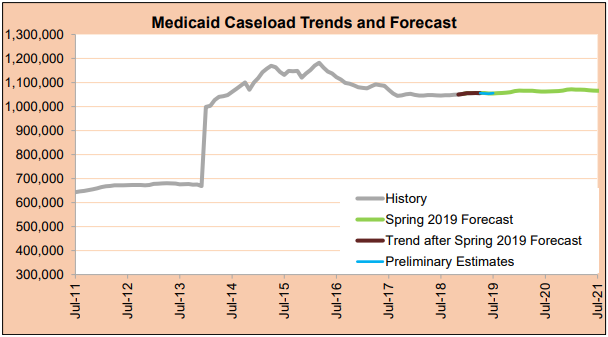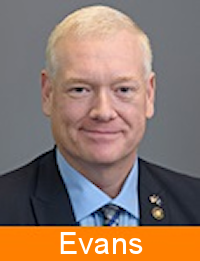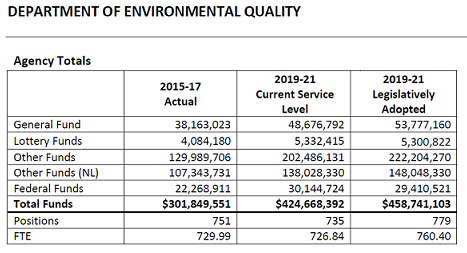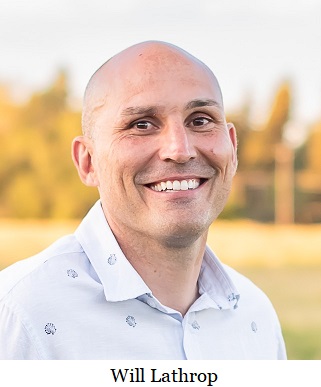
On this day, August 27, 2019, jet-car speed racer 30-year-old Jessi Combs, known by fans as the "fastest woman on four wheels," died in a crash in the Alvord Desert in Southeastern Oregon while trying to break a speed record.
 Post an Event
Post an Event
| Benton County Republicans’ Private Fundraising Event, “Bent-on Boots and Bling” with Trey Taylor |
| Friday, September 5, 2025 at 5:00 pm |
| Featuring Trey Taylor
Music Private Event
Friday, September 5, 2025 5:00-5:30 pm VIP Reception
5:30-8:00 pm Heavy Appetizers,
Auction, Concert
Red: $750 VIP Reception
Front Row Table Sponsor
White: $500 Table Sponsor
Blue: $50 per person
Limited Seating. Get Yours Now!!!
Support Local
Dress up: Bling, Cowboy, Patriotic Benton County Republican
FUNDRAISER
www.BentonGOP.org
Get your tickets today at:
https://www.bentongop.org/event-details/benton-county-republicans-fundraiser/form
About Trey:
Trey is the youngest African American Man in Country Music History. The Denver Post wrote
"It's impossible to miss his enthusiasm. With a fondness for cowboy boots, gaudy colors and dazzling jewelry, Trey Taylor could stand toe to toe with any of the Pop, Country or even Rap
contemporaries of his generation.“ |
| Trysting Tree Golf Club, 34028 NE Electric Rd., Corvallis |
State Senator Shemia Fagan has been receiving lots and lots of cash from government unions
Government employee unions have been giving quite a bit of cash lately to Secretary of State candidate and current State Senator, Shemia Fagan (D-Portland). She's received a donation of $32,000 from the Oregon Education Association, the largest teachers' union in the state on April 17, as well as a donation of the exact same amount ($32,000? Maybe they have a matching gift program) from Citizens Action for Political Education, a political arm of SEIU, one of the largest public employee unions in the state.
Fagan has raised over $175,000.00 so far and has about $100,000.00 on hand.
Fagan entered the race after former House Majority Leader and State Rep. Jennifer Williamson (D-Portland) left the race amid a cloud of allegations that she
used campaign funds for lavish travel. Her political future is uncertain.
One reason political experts are so interested in the Secretary of State's race this cycle is that whomever is elected will create the district maps in the redistricting process, if the Legislature fails to complete the redistricting process.
--Staff Reports| Post Date: 2020-04-27 09:39:40 | Last Update: 2020-04-27 09:39:49 |
He replaces Senator Herman Baertschiger, who is stepping down.
State Senator Fred Girod (R-Lyons) was elected to be the next Senate Minority Leader in the Oregon Legislature, replacing Herman Baertschiger (R-Grants Pass) who has stepped down from that role to
run for Josephine County Commissioner. Baertschiger will be best known for his leadership during the legislative walk-out over Cap and Tax and other controversial pieces of legislation being pushed by the Democrats.
Oregon House Minority Leader, Christine Drazan said, "I have enjoyed working together on issues our constituents care deeply about. Senator Girod brings his years of experience in the Oregon Legislature to his new role as Senate Republican Leader and I look forward to partnering with him for the benefit of all Oregonians."
Senate Majority Leader, Ginny Burdick (D-Portland) Congratulated Senator Girod on his new role, saying "I have served with Senator Girod in the Senate for 12 years and I appreciate his good humor and commitment to public service. I know he will be a great leader for the Senate Republican caucus. I look forward to working with him in this new capacity."
Senate Republicans look to make gains in the November elections. They are currently in a super-minority holding 12 seats out of 30.
--Staff Reports| Post Date: 2020-04-26 21:55:25 | Last Update: 2020-04-26 21:57:10 |
Even before the state was hit with COVID-19, the Medicaid burden had become unsustainable
Historically, Medicaid was funded almost exclusively by the federal government. Now, with the Medicaid expansion and the extension of benefits to illegal aliens, Medicaid is on the verge of becoming unsustainable both in terms of costs and the demands that it puts on resources and personnel, and these costs are being increasingly borne by the state. Medicaid programs deliver health care services to over one million people in Oregon -- about a quarter of the population -- primarily through the Oregon Health Plan, which supports comprehensive health care coverage for low-income adults and
children eligible for Medicaid, children eligible under the federal Children’s Health Insurance Program (CHIP), and
children who would be eligible for Medicaid or CHIP except for their immigration status.
Oregon's Medicaid programs have experienced significant changes in the last several years. In the 2011-13
biennium, Oregon transformed the way it provides and pays for medical assistance through a new Medicaid
health care delivery system managed by coordinated care organizations (CCOs). A CCO is a network of all types of
health care providers who agree to work together in local communities to serve OHP members. CCOs focus on
prevention; chronic disease management; early intervention; integration of physical, behavioral, and oral health;
and the reduction of waste and inefficiency in the health system.
The jury is still out on the effectiveness of CCOs to meet this mission.
The chart at the right shows the considerable spike in caseload when Medicaid was expanded. It should be noted that the estimates that the chart was based on were made before the recent COVID-19 outbreak.
--Staff Reports, with Legislative Fiscal Office| Post Date: 2020-04-26 21:20:21 | Last Update: 2020-04-26 21:20:39 |
Critics say she may be on thin ice.
Upset with the lingering "don't go out unless ncecessary" order, people are beginning to question the legal authority that Governor Brown is relying on to justify her order. It's clear that she has some authority.
Governor Kate Brown has used a statutory process, ORS 401.165, to declare a state of emergency. When the
Governor declares a state of emergency under ORS 401.165, the Governor has the following powers, among
others:
- The right to exercise all police powers vested in the state by the Oregon Constitution. ORS 401.168 (1). The right to suspend state agency orders and rules. ORS 401.168 (2).
- The right to direct state agencies to use personnel, equipment and facilities to prevent or alleviate damage caused by the emergency. ORS 401.168 (3).
- The right to assume control over all emergency operations, and police and law enforcement activities. ORS
401.175 (1) and (2)
- The right to require the aid and assistance of any state agency or other public or quasi-public agency in the performance of duties and work related to the emergency. ORS 401.175 (5).
- The right to control, restrict and regulate by rationing, freezing, prohibiting or other means, the use, sale or distribution of food, feed, fuel, clothing, or other commodities, materials, goods or services. ORS 401.188 (1).
- The right to prescribe and direct activities in connection with the use, conservation, salvage and prevention of waste of materials, services and facilities, including but not limited to, production, transportation, power and communication facilities, training and supply of labor, utilization of industrial plants, health and medical care, nutrition, housing, rehabilitation, education, welfare, child care, recreation, consumer protection and other essential civil needs. ORS 401.188 (2).
- The right to take any other action necessary for the management of resources following the emergency. ORS 401.188 (3).
What's not clear is how she can justify intervening in the private economy when it doesn't concern the "management of resources". Since the courts are closed now, it's perhaps not possible for litigation, but as things return to normal, there may be opportunities for some to take action against the State of Oregon and Governor Brown.
--Staff Reports| Post Date: 2020-04-26 18:51:53 | Last Update: 2020-04-26 18:52:10 |
State Rep. Paul Evans voted for a carbon tax that won
Everyone -- well almost everyone -- still remembers the Republican walk out from the 2020 short session to quash the carbon tax and a host of other controversial legislation, but not many remember that the carbon tax passed the House in 2019, only to fail in the Senate. Many have forgotten that Paul Evans (D-Monmouth) is one that voted for this regressive tax.
Economic experts say that this legislation has grave economic consequences and that it may ultimately lead to a recession in Oregon. Early estimates of costs just to state agencies are estimated by legislative fiscal office to be upward of $22 million during the first year. These costs "are primarily associated with the initial implementation of the bill in the 2019-21 biennium. Subsequent biennia costs may be significantly higher due to the roll-up of position costs, standard inflation, or undefined factors such as information technology application implementation."
--Staff Reports| Post Date: 2020-04-26 18:43:43 | Last Update: 2020-04-26 18:43:52 |
Lock down Oregon Day 35.
No matter what Oregon does with computer systems some how things get screwed up. Remember the deal with Oracle and Obama care? The next problem is going to be with Oregon implementing Real ID, seems DMV computer capability is going to have a very rough go of it. Have you ever wondered "where is the legislative oversight?"
The long hold times at the Oregon Employment Department are only an example of how Oregon's ruling party has proven incompetent in resolving most of the real issues that affect formerly working, taxpaying, private sector Oregonians. Instead, they have focused on expanding their power to control through excessive taxation, draconian legislation, and denial of the constitutional prerogative reserved for voters to decide on issues by declaring fake emergencies-to prevent dissension. Then, when an economic crisis does present itself, they accept no responsibility for their disastrous failures and misguided agenda. It seems the only disaster planning contingencies the Democrats know is how to cause them.
The questions I would like to ask candidates and elected officials are: So who is responsible for this mess? Why has no one been held accountable? What is your plan to fix this? Why should we vote for you? How are you going to be any different when it comes to tackling the real issues that affect formerly working Oregonians?
Why should I trust you to do any better at anything than they-the enlightened-who have promised nirvana and delivered a dung pile?
My objective is to encourage you to inform voters what you think and how you will address issues that are impacting them now and in the future.
--Northwest Observer Editorial Board| Post Date: 2020-04-26 17:44:44 | Last Update: 2020-04-26 17:46:12 |
A group of citizens is proposing that the commissioners meet some criteria for appointment.
The Department of Environmental Quality is a state agency and, like many larger state agencies, gets policy direction from a commission, appointed by the Governor. In the case of the DEQ, there is a five-member Environmental Quality Commission, appointed by the Governor, without any required qualifications or criteria.
A group of citizens has proposed an initiative that would require the Governor to consider the following criteria when making an appointment:
     (a) No two members shall reside in the same Congressional district.
     (b) At least one member shall be from the mining community
     (c) At least one member shall be from the agricultural community
     (d) At least one member shall be from the manufacturing community
     (e) At least one member shall be from the timber community
Registered Oregon voters who are interested in signing the petition can
download the signature sheet here. It must be printed, signed and snail mailed to one of the addresses on the back. It cannot be electronically submitted.
The DEQ budget is comprised of five major program units: Air Quality, Water Quality, Land Quality, Agency Management, and Pollution Control Bonds.
• Air Quality – This program area is responsible for compliance with federal and state air quality standards. The program monitors air quality to protect public health through the development and implementation of pollution reduction strategies. The primary sources of air pollution in Oregon are motor vehicles, forest slash burning, woodstoves, industrial facilities, field burning, and area sources. The federally delegated air quality program includes statewide air quality monitoring and emissions inventory, strategic planning for pollution reduction, and a permit system.
• Water Quality – This program area’s primary functions are setting and monitoring water quality standards and assessments, controlling wastewater through permits and certifications, providing financial and technical assistance, implementing the Oregon Plan for the restoration of salmon populations and watersheds, and implementing portions of the Safe Drinking Water Act. The Water Quality program also operates the nonpoint source pollution program in Oregon. Nonpoint source pollution is not attributable to a specific source point. Examples of nonpoint source pollution include storm water and agricultural runoff.
• Land Quality – This program area focuses on preventing and reducing waste generation, assuring that waste generated is properly managed, responding to emergency spills, and cleaning up sites contaminated with hazardous substances and uncontrolled releases of toxic chemicals. Land Quality operates the federally approved solid waste landfill compliance program and the federally delegated hazardous waste program.
• Agency Management – This program provides leadership, coordination, and support for DEQ and staff assistance for the Environmental Quality Commission.
• Pollution Control Bonds – The sale of pollution control bonds is used by the Department to finance the Clean Water State Revolving Fund, the Sewer Assessment Deferral Loan program, and the Orphan Site program. Bond proceeds are used to finance municipal waste water facility construction and other water pollution reduction projects.
--Staff Reports| Post Date: 2020-04-26 17:23:46 | Last Update: 2020-04-26 17:23:56 |
Subscribe for daily updates
 --Staff Reports
--Staff Reports| Post Date: 2020-04-26 12:00:00 | Last Update: 2020-11-08 12:28:39 |
How they differ from your average policy committee
There are (basically) two kinds of committees in the Legislature: Policy Committees and Ways & Means Committees. On Policy committees, it's Democrat vs. Republican and the Republicans always lose, unless it really doesn't matter, or unless someone sells their soul.
Ways & Means SubCommittees are different.
First of all, even though all budgets, as well as any bills that have a significant fiscal impact, go through them, they are not really budget committees. The budgets are made up by the Co-Chairs (or Tri-Chairs) of Ways & Means, and the SubCommittees don't really have that much input as to how much money goes to agencies and for what purpose.
This is why:
Let's say we have a family and we make $50,000 a year. I am the Car Committee for the family and I want to get a $72,000 Porsche. I can get a 5 year loan and the payments will be about $20,000 per year, including interest. What's the problem? The problem is that it only leaves $30,000 for all the other needs for the family (housing, food, utilities, etc). Why should I take that into account? It's a really nice car and it would be cool to have. That's why the Ways & Means SubCommittees don't get to fix budgets -- because every budget expenditure impacts the ability of every other budget expenditure and only those who have the really big picture can do the give and take necessary to craft a complete budget.
So, what do Ways & Means SubCommittees do, if they are not helping to craft the budget? The best use of Ways & Means SubCommittees and the scheduled committee meetings is as oversight for State Agencies. Each of the 120 or so State Agencies will have to appear before one of the SubCommittees and talk about what they are doing and justify their additional asks. It's a perfect time to hold them to account for performance, etc.
There are 6 Ways & Means SubCommittees (all of them are joint committees, consisting of both Senators and Representatives)
- Education
- General Government
- Human Services
- Natural Resources
- Public Safety
- Transportation and Economic Development
Additionally, there is the Capitol Construction SubCommittee which does make important decisions about State owned infrastructure, but doesn't oversee any agencies. Further, there is a Joint Committee on Information Management and Technology, which oversees technology projects for the State.
If a Legislator is on policy committees, they will have all the drama and excitement of the debate over the latest restrictions on firearms, or housing, or the newest carve-out for illegal immigrants, or, well, sadly, there are no more debates about abortion anymore because they are all always available at any time and if you can pay for it the state will make your insurance pay for it, and if you don't have insurance, then the state will pay for it. So, if a Legislator wants to "participate" in those debates, they can, but they lost way back in November, when the citizens of Oregon elected a Democratic majority in both chambers, as well as the Governor. So, they're not really "participating" in any debate, because the Party in Power is going to run the table on them.
Or, they can get on a Ways & Means SubCommittee and face down the agency director of -- fill in the blank -- Oregon Health Authority, Energy Dept., DHS, Revenue, Employment, ODOT, whatever. The directors have to sit there and answer their questions, with the cameras rolling and the public watching and they can hold them accountable. It's the greatest power the minority party has in the Legislature.
One Legislator is fond of telling activists this:
While you were on the way to the Judiciary Committee hearing, where you were going to testify against the latest bill to infringe on your firearm rights, you walked past Hearing Room E. You were on your way to be the 318th person to testify about how this bill is unconstitutional and that it should not pass. You didn't really care that they don't have to listen to you and that they're going to pass the bill right through because they have an iron-clad majority in every branch of government, as you walked right past Hearing Room E. The hearing in Hearing Room E, was a budget hearing for the Department of Consumer and Business Services -- pretty boring stuff, especially compared to your gun rights being taken away -- and they were asking for 6 more people to help processing complaints against insurance companies, so that they could better serve the public, so they say.
That's what was going on in Hearing Room E, that you walked right by. And those 6 new employees, each will pay an average of $1,000 per year, or $2,000 per election cycle or $12,000 for the six of them in public employee union dues, which will go straight in the pocket of some Democrat, who, next November, will beat some incumbent Republican and further strengthen the iron-clad majority held by the Democratic Left, and they will be further emboldened to take more of your gun rights -- eventually just your gun.
Keep your eyes on what is important.
--Staff Reports| Post Date: 2020-01-01 21:44:18 | Last Update: 2020-05-23 21:45:07 |
Will Lathrop is running for Attorney General of Oregon
Former Assistant District Attorney in Yamhill and Marion County Will Lathrop is
running for Oregon Attorney General in 2024. Lathrop is a 6th generation Oregonian, raised on a cattle ranch in Wallowa County. He graduated from Willamette University Law School and joined the Oregon Bar in 2004. He began his legal career as a prosecutor working for Yamhill D.A. Brad Berry. He then worked prosecuting pedophiles in Marion County. In 2013 he moved to Washington D.C. to train prosecutors in best practices.
In 2014 he joined
International Justice Mission to build justice systems in third world countries. His first assignment was Uganda -- a country run by warlords. Lathrop led a team of 25 to finalize the land title system so that warlords could no longer steal the property of the defenseless. His team went to Ghana in 2018 to combat human trafficking. The Volta River was dammed in 1965 to form a huge artificial lake (about the size of Yellowstone National Park) used for fish farming. Child slave labor involves as many as 40,000. Kids as young as 4 are sold into slavery there for fish farming. Lathrop got 60 convictions of warlords leading to the freedom of near 6000 kids.
A D V E R T I S E M E N T

A D V E R T I S E M E N T
Work in Africa is always a crisis situation. When you take it on you either sink or swim as a leader. Many wash out their first year. Lathrop gained confidence in his ability to face difficult challenges.
When Lathrop came back to Oregon he didn’t recognize the state he had grown up in. He saw another crisis. Quite simply Lathrop wants to fix Oregon. Oregon’s Attorney General is the state’s Top Cop. Currently 1200 work in Oregon’s Department of Justice but only 15 are criminal law attorneys. Lathrop sees Oregon at a threshold. The A.G’s office can change many bad policies or let them continue. Oregon had out migration in 2022 as citizens fled a state where crime goes unpunished, where election fraud is tolerated and where bureaucrats determine laws.
--Staff Reports| Post Date: 1950-05-06 05:43:12 | Last Update: 2023-06-01 17:29:13 |
Its easier and less expensive than you might think
If you're interested in advertising with the Northwest Observer, contact the advertising manager at
advertising@northwestobserver.com--Northwest Observer Advertising Department| Post Date: 0000-00-00 00:00:00 | Last Update: 2020-12-24 20:35:24 |
Is this an attack on rural Oregon?
When the Governor’s race was in full swing, Governor Brown posted pictures of her riding horses and pictures with dogs. Her team discovered that dogs and horses increased views significantly. Everyone loves their pets. Representative Rob Nosse (D-Portland) should know the benefits that animals bring to therapy from working for the Oregon Nurses Association. But, his lack of that personal experience is apparent in his introduction of
HB 3008.
HB 3008 prohibits a person from using domestic dogs, cats, horses, donkeys, cows, Ilama, sheep, reindeer, pigs, goats, and many exotic type animals in the Traveling Animal Act, which prohibits performance in which an animal is transported to perform. “Performance†is defined as a carnival, circus, display, exhibition, exposition, fair, parade, petting zoo, photographic opportunity, race, ride, trade show or similar undertaking during which an animal performs tricks, gives rides or otherwise entertains or amuses an audience, whether or not a fee is charged.
If your grandchild brings his pet over to show you new tricks, are you entertained or amused? No more photo ops for the Governor, no more petting animals for kids at the fair, no more horse clues, no more livestock shows for 4-H clubs and Future Farmers of America. These organizations teach our youth how to be responsible owners and breeders by taking pride in showing their animals. This experience provides the basis to be good productive citizens. It begs the question of why Rep. Nosse wants to dash the dreams of animal lovers and future farmers.

As this bill is written, even the most common kind of therapy animal, a therapeutic visitation animal, would be in jeopardy. Violations in the bill allows forfeiture of the animal, which could be devastating to a patient. The bill seems to be aimed at abusive training of an animal. Oregon has several laws in place for abuse and neglect of animals.
ORS 167.350 requires forfeiture of rights when an animal is mistreated. Every type of animal has an organization that studies the effects of training on an animal. Animals are empowered when presented choices, which helps eliminate stress. According to the Animal Behavior Center, training builds mental confidence and it even makes medical examinations less stressful for the animal.
What about those professional pet photos? Will Governor Brown remove her riding pictures from social media?
--Donna Bleiler| Post Date: 0000-00-00 00:00:00 | Last Update: 2021-01-30 18:30:08 |
Read More Articles


















 As this bill is written, even the most common kind of therapy animal, a therapeutic visitation animal, would be in jeopardy. Violations in the bill allows forfeiture of the animal, which could be devastating to a patient. The bill seems to be aimed at abusive training of an animal. Oregon has several laws in place for abuse and neglect of animals. ORS 167.350 requires forfeiture of rights when an animal is mistreated. Every type of animal has an organization that studies the effects of training on an animal. Animals are empowered when presented choices, which helps eliminate stress. According to the Animal Behavior Center, training builds mental confidence and it even makes medical examinations less stressful for the animal.
As this bill is written, even the most common kind of therapy animal, a therapeutic visitation animal, would be in jeopardy. Violations in the bill allows forfeiture of the animal, which could be devastating to a patient. The bill seems to be aimed at abusive training of an animal. Oregon has several laws in place for abuse and neglect of animals. ORS 167.350 requires forfeiture of rights when an animal is mistreated. Every type of animal has an organization that studies the effects of training on an animal. Animals are empowered when presented choices, which helps eliminate stress. According to the Animal Behavior Center, training builds mental confidence and it even makes medical examinations less stressful for the animal.